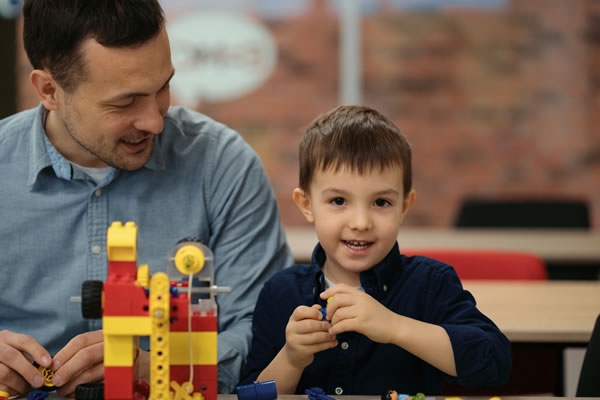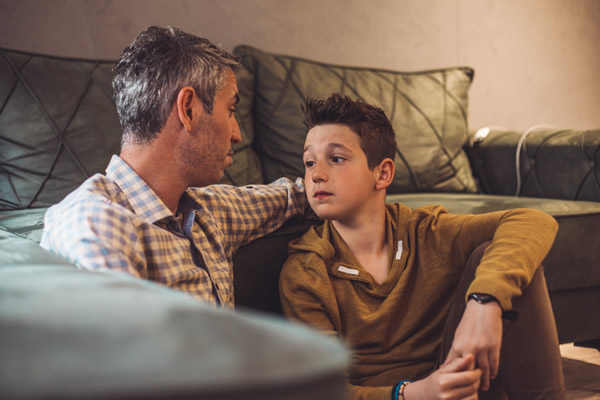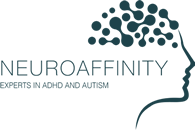AUTISM IN CHILDREN
Signs of autism in children
Autism Spectrum Disorder (ASD) is a developmental disorder that affects communication and social interaction. It is a spectrum disorder, which means it affects people differently and to varying degrees. The signs of autism in children can vary, but some common characteristics are typically present in autistic children.
- Social interaction and communication challenges
- Difficulty initiating or maintaining conversations
- Lack of interest in the activities of peers
- Delayed language development
- Specific sensory interests and sensory avoidance
- Difficulty with imagination and play
- Repetitive patterns of behaviour or activities
- Not making eye contact or understanding social cues

Difficulty with communication
One of the most common signs of autism in children is difficulty with communication. Autistic children may have trouble with verbal and nonverbal communication, such as making eye contact, expressing themselves, and understanding the language of others. They may also struggle to understand sarcasm or jokes and have difficulty initiating or maintaining conversations.
Social interaction difficulty
Another common sign of autism in children is difficulty with social interaction. Autistic children may have trouble understanding social cues and making friends. They may also need help understanding the perspectives of others and find engaging in group activities hard.
Repetitive behaviours
Autistic children may display repetitive behaviours, such as rocking, spinning, or flapping their hands. They may also have a strong interest in a specific topic or object and may become fixated on it to the exclusion of other activities.
Lack of interest in social interaction
Autistic children with autism may also lack interest in social interaction. They may not enjoy playing with other children or prefer to be alone. They may also have a hard time understanding the emotions of others and might not understand the importance of social relationships.
Difficulty with nonverbal communication
Some autistic children struggle with nonverbal communication, such as facial expressions, body language, and gestures. They may also have trouble understanding the meaning of tone of voice and may not understand the nuances of social interactions.
It is important to note that these signs may not be present in all autistic children with autism, and some children may exhibit different signs. It’s also important to remember that these signs may be present in children who do not have autism and should be assessed by a qualified professional to make a diagnosis. Early diagnosis and intervention are very important. With a diagnosis, various interventions can help autistic children, with treatment options including behavioural therapy, speech therapy, and occupational therapy.
Developmental Presentations
Infancy
Characteristic features may emerge during infancy although they may only be recognized as indicative of Autism Spectrum Disorder in retrospect. It is usually possible to make the diagnosis of Autism Spectrum Disorder during the preschool period (up to 4 years), especially in children exhibiting generalized developmental delay. Plateauing of social communication and language skills and failure to progress in their development is not uncommon. The loss of early words and social responsiveness, i.e., a true regression, with an onset between 1 and 2 years, is unusual but significant and rarely occurs after the third year of life. In these cases, the qualifier ‘with loss of previously acquired skills’ should be applied.

Preschool
In preschool children, indicators of an Autism Spectrum Disorder diagnosis often include avoidance of mutual eye contact, resistance to physical affection, a lack of social imaginary play, language that is delayed in onset or is precocious but not used for social conversation; social withdrawal, obsessive or repetitive preoccupations, and a lack of social interaction with peers characterized by parallel play or disinterest. Sensory sensitivities to everyday sounds, or to foods, may overshadow the underlying social communication deficits.

Middle Childhood
In children with Autism Spectrum Disorder without a Disorder of Intellectual Development, social adjustment difficulties outside the home may not be detected until school entry or adolescence when social communication problems lead to social isolation from peers. Resistance to engage in unfamiliar experiences and marked reactions to even minor change in routines are typical. Furthermore, excessive focus on detail as well as rigidity of behaviour and thinking may be significant. Symptoms of anxiety may become evident at this stage of development.

Adolescence
By adolescence, the capacity to cope with increasing social complexity in peer relationships at a time of increasingly demanding academic expectations is often overwhelmed. In some individuals with Autism Spectrum Disorder, the underlying social communication deficits may be overshadowed by the symptoms of co-occurring Mental and Behavioural Disorders. Depressive symptoms are often a presenting feature

Getting an autism diagnosis for your child
Getting a diagnosis for your child or teenager can be key to understanding their challenges and ensuring they get the best possible support in place.
Why get a diagnosis?
As parents, we are often loathed to ‘label’ our children, worried that doing so may somehow define them unfairly. However,
an autism diagnosis has many benefits, including:

Creating an understanding of why your child finds certain things challenging

Ensuring your child has the correct support around them to enable them to thrive

Giving your child a way to understand why they find some things difficult compared to other children
What happens in a child’s autism assessment?
It’s important to get an assessment with a qualified professional who is trained and experienced in diagnosing autism to ensure they consider all aspects of your child’s life and other conditions that may be present.
The ‘gold-standard’ approach to diagnosing autism in children is to have several clinicians involved – this is known as a multi-disciplinary approach and ensures a comprehensive and objective assessment.
Our autism assessments use evidence-approved recommendations with input from some of the most experienced clinicians in the UK.
Autism assessments are extremely thorough, and parents are often amazed at the detail our clinicians go into to ensure they have the right information to inform important diagnostic decisions. Please see the ‘Autism Assessment’ page to see the autism assessment process.


